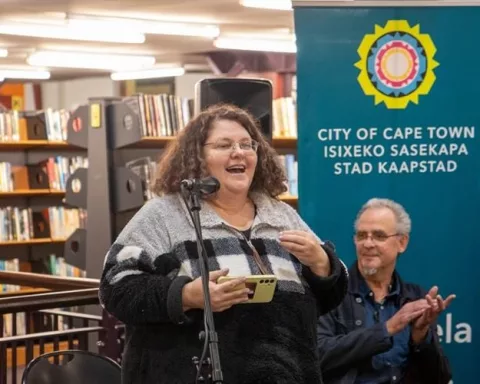South Africa’s National Shelter Indaba conference has highlighted the significant funding shortfall and logistical hurdles faced by shelters providing support to victims of gender-based violence and femicide (GBVF). The lack of social workers in these facilities and regulatory hurdles are also major challenges. The government and private sector have been urged to provide support, resources, and infrastructure to address the GBVF crisis, which has been likened to the scale and impact of the COVID-19 pandemic.
The National Shelter Indaba in South Africa highlights the funding shortfall, logistical hurdles, and lack of social workers in shelters supporting victims of gender-based violence and femicide (GBVF). Shelters are burdened with a massive financial burden, leaving them scant funds to offer the wide range of services needed, including transportation and safety precautions. The government and private sector are urged to provide support, resources, and infrastructure to effectively tackle the GBVF crisis.
The National Shelter Indaba’s Alarm Bell
A reverberating call for aid has been sounded by the National Shelter Indaba, a two-day event currently underway in Sandton, South Africa. This conference has laid bare the glaring gaps in assistance for victims of gender-based violence and femicide. The highlighted deficiencies encompass a funding shortfall, logistical hurdles, a lack of social workers in certain facilities, and regulatory hitches within shelters.
Shelters are grappling with a massive financial burden, as half of their resources are expended on staff remuneration. This leaves them scant funds to offer the wide range of services needed. Sindisiwe Msimango, a shelter manager from Mpumalanga, illuminated this predicament by underscoring the transportation issue. Victims necessitate transport to and from law enforcement and healthcare facilities, while contemporary offenders, employing advanced tracking methods, present a substantial risk to both victims and social workers.
The Challenges and Urgency for Action
Moreover, ineffective safety precautions and tardy government subsidies present hazards to both shelter staff and residents. Rose Bailey, who operates a shelter in Northern Cape Province, underscored the critical life-saving and mental health restoration functions of these institutions. They are far from simple charities, and Bailey passionately called for more acknowledgment and backing for their work.
This plea was echoed by Dr Phumzile Mlambo-Ngcuka, former Deputy President of South Africa. She highlighted the pressing need for a unified response to gender-based violence and femicide (GBVF), a crisis she likened to the scale and impact of the COVID-19 pandemic. In a more chilling revelation, she observed that women are often let down by an ineffective system, as their abuse cases are not successfully prosecuted, leading to further disillusionment.
Teaming Up for Solutions and Future Commitments
In the pursuit of solutions, Uber SA divulged a collaboration with the National Shelter Movement South to ensure safe transportation for GBVF victims. Uber SA’s senior operations manager, Mr Collen Mphabantshi, reported that the company had safely transported over 6,715 women and children through this partnership.
The call for wider support from the private sector was made by Social Development Minister Lindiwe Zulu. She stressed the crucial role of shelters in offering care, safety, and recovery opportunities for victims. Businesses were urged to supplement the government’s efforts by providing suitable properties and infrastructure to function as shelters.
Strengthening their commitment, the Department of Social Development has earmarked over R211 million over the next four years to 134 shelters across the nation that offer victim support services. The Minister also unveiled plans to inaugurate another shelter in the North West during the 16 days of activism against violence directed at women and children.
The National Shelter Indaba, a platform that brings urgent GBVF issues to the forefront and inspires widespread awareness and action, will continue tomorrow in Johannesburg. The event will be streamed live on www.dsdtv.org.za/live-stream, starting at 9am.
Closing Thoughts
The systemic shortcomings unearthed at this Indaba serve as both a stark reality check and a compelling call to action. It is evident that a collective effort from all sectors – government, private, and civil society – is required to effectively tackle these issues. The challenge is colossal, but with the right resources and dedication, a significant impact can be made.
1. What is the National Shelter Indaba conference about?
The National Shelter Indaba conference in South Africa highlights the significant challenges faced by shelters providing support to victims of gender-based violence and femicide (GBVF), such as a funding shortfall, logistical hurdles, and a lack of social workers.
2. What are the major challenges faced by shelters supporting victims of GBVF?
Shelters supporting victims of GBVF face a massive financial burden, leaving them with scant funds to offer the wide range of services needed, including transportation and safety precautions. The lack of social workers in these facilities and regulatory hurdles are also major challenges.
3. What is the urgency for action in tackling GBVF crisis?
The GBVF crisis has been likened to the scale and impact of the COVID-19 pandemic by Dr Phumzile Mlambo-Ngcuka, former Deputy President of South Africa. Women are often let down by an ineffective system, as their abuse cases are not successfully prosecuted, leading to further disillusionment.
4. What is the role of shelters in offering care and recovery opportunities for victims of GBVF?
Shelters play a crucial role in offering care, safety, and recovery opportunities for victims of GBVF. They are far from simple charities, and their critical life-saving and mental health restoration functions were highlighted by Rose Bailey, who operates a shelter in Northern Cape Province.
5. How can the private sector supplement the government’s efforts in supporting victims of GBVF?
Businesses can supplement the government’s efforts by providing suitable properties and infrastructure to function as shelters. Social Development Minister Lindiwe Zulu called for wider support from the private sector in offering care, safety, and recovery opportunities for victims of GBVF.
6. What solutions have been proposed to tackle the GBVF crisis?
Uber SA has collaborated with the National Shelter Movement South to ensure safe transportation for GBVF victims, and the Department of Social Development has earmarked over R211 million over the next four years to 134 shelters across the nation that offer victim support services. The Minister also unveiled plans to inaugurate another shelter in the North West during the 16 days of activism against violence directed at women and children.








